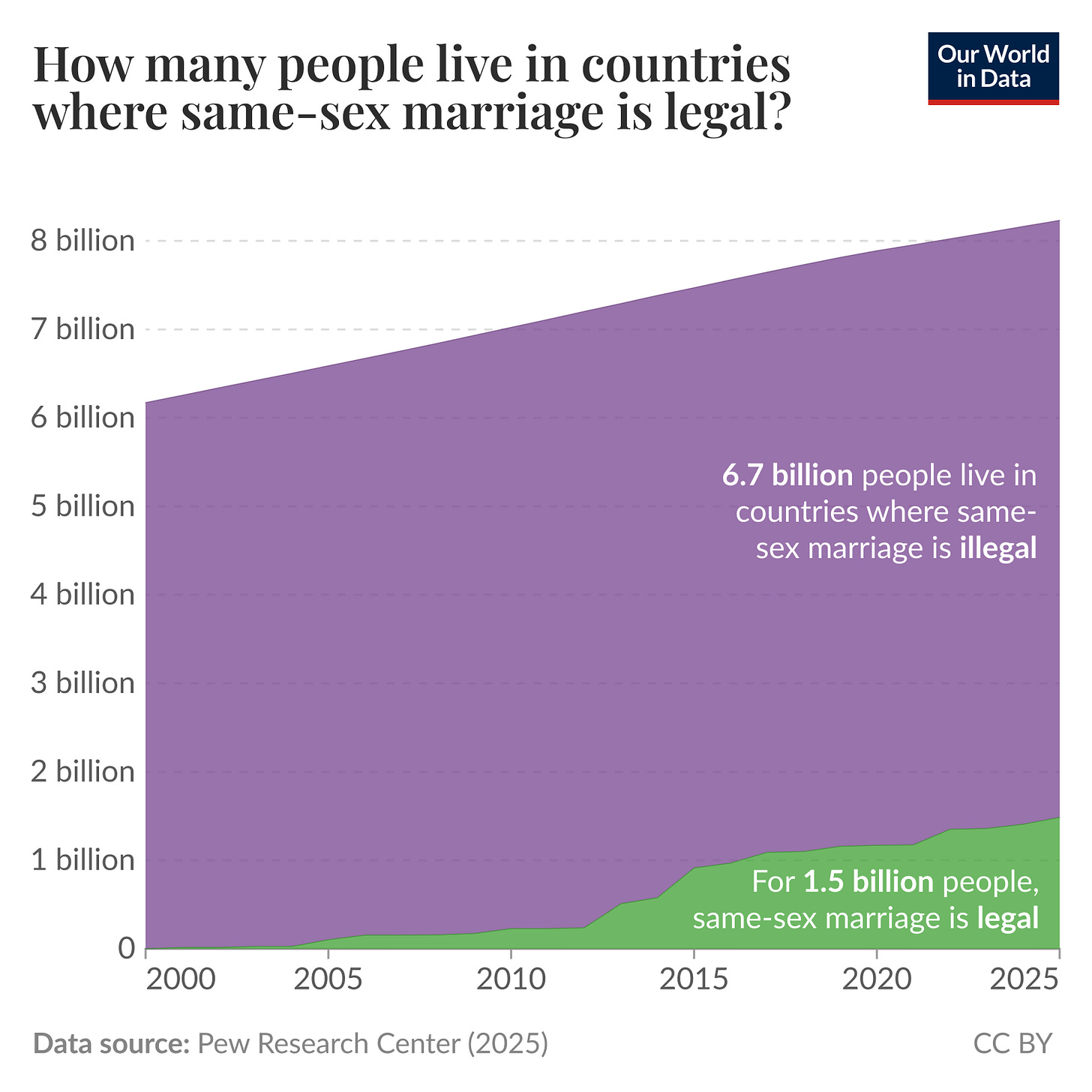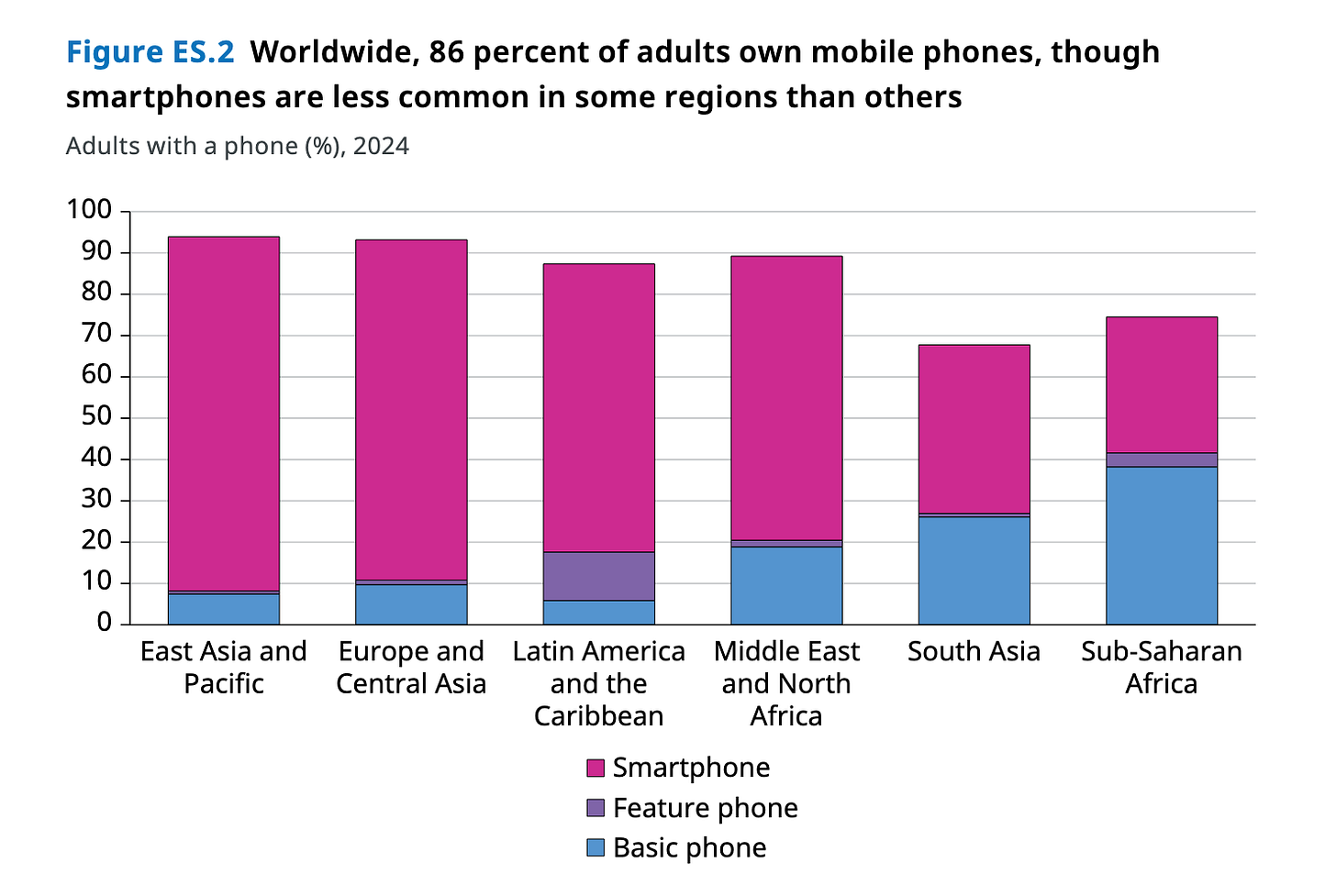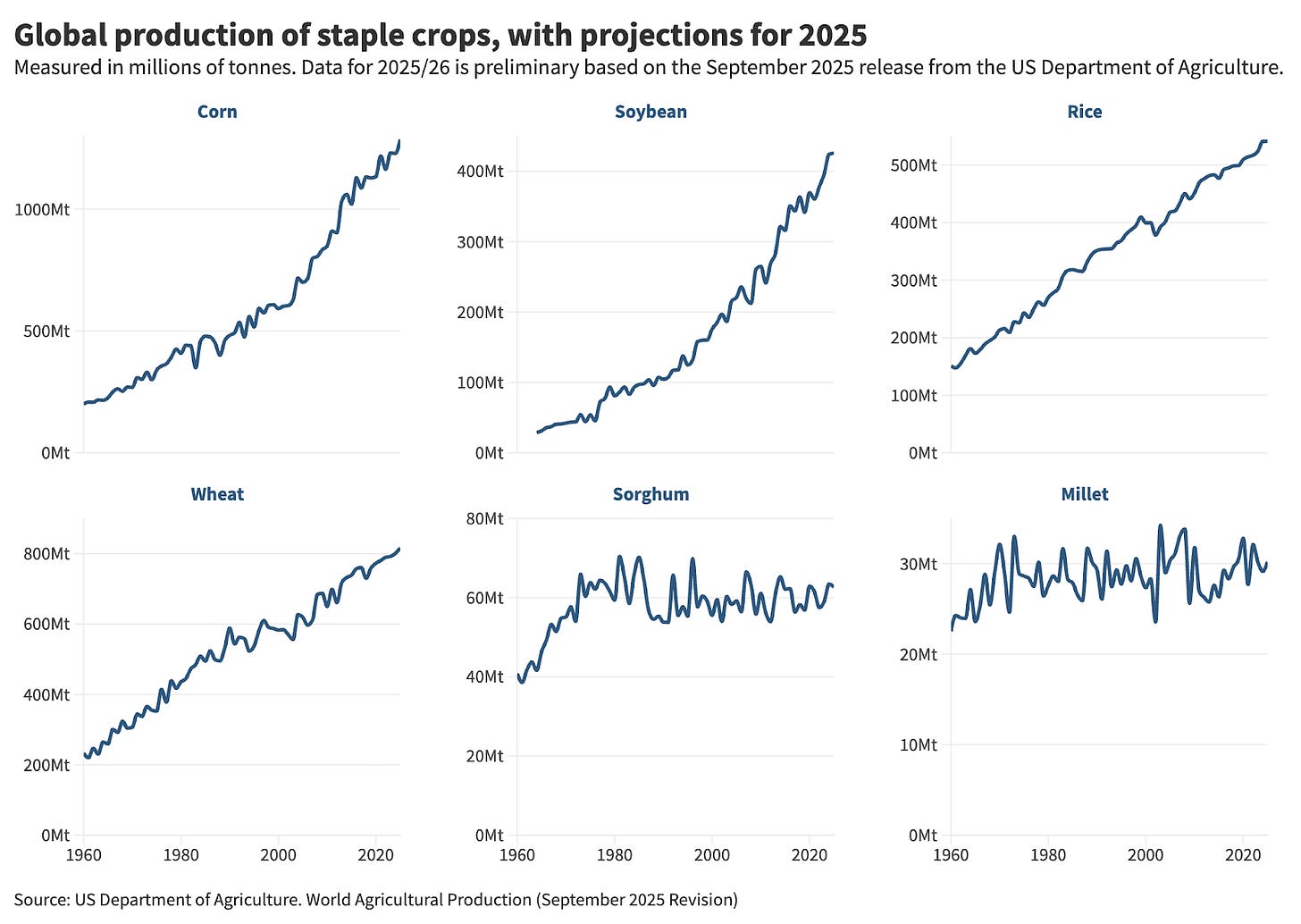Doomslayer: Progress Roundup
Bountiful harvests, the first treatment for Huntington's, and more.
Thank you to those who filled out our survey. Based on your feedback, we are returning to weekly progress roundups. Also, as a reminder, you can opt out of certain categories of Human Progress content using your notification settings.
Culture & Tolerance
Charitable giving in the United States was 3.3 percent higher in 2024 than in 2023, after adjusting for inflation.
The freedom to marry a member of the same sex, while still uncommon, is spreading. Today, a record 1.5 billion people live in countries where same-sex marriage is legal.
Gallup polling indicates that, in 2024, 73 percent of adults reported feeling “safe walking alone at night in their city or area,” the highest share ever recorded.
Bolivia has banned child marriage.
Economics & Development
79 percent of adults worldwide had a bank account in 2024 according to the World Bank’s Global Findex Database report, up from 74 percent in 2021. Much of this progress is thanks to the proliferation of mobile phones.
Energy & Environment
An interesting and counterintuitive paper finds that wildfires in the western United States might actually improve air quality in the east thanks to the heat they generate, which blocks smoke from drifting and creates more rainfall that washes pollution out of the air.
Food & Hunger
Most staple crops are expected to have record-high global harvests this year, thanks to ever-rising crop yields. Meanwhile, wheat, corn, and soybean prices have fallen to levels not seen since 2020.
Health & Demographics
In a small preliminary trial, doctors in the UK slowed the progression of Huntington’s disease by 75 percent over a three-year period. The intervention, which combined gene therapy with brain surgery, is the first to show meaningful treatment of the condition. One trial participant, who had previously retired due to his illness, even returned to work following the procedure.
A deal between the Clinton Health Access Initiative, Gates Foundation, and other partners will lower the cost of the HIV prevention drug lenacapavir from $28,000 to just $40 a year in poor countries. The twice-yearly injection has shown strong protection in trials and, if widely adopted, could prevent hundreds of thousands of new infections each year.
Science & Technology
Smartphones have already replaced numerous tools, including cameras, radios, alarm clocks, photo albums, voice recorders, and maps. Now, in combination with accessories like AirPods, they are taking over from a range of health devices, from hearing aids to glucose monitors.
Using lasers, NASA recently sent and received data over a distance of 218 million miles to and from its Psyche spacecraft. The optical signals can carry information 10 to 100 times faster than radio, a major potential improvement in deep-space communication.
China may have accomplished the first-ever refueling in high Earth orbit.
Researchers at Northwestern have created a new cellular delivery system for CRISPR. In lab tests, the gene-editing tools delivered with the new method were three times more likely to get inside cells, produced three times as many successful edits, and caused fewer side effects than current approaches.





The smartphones one is particularly cool-- we always hear about the material input cost of smartphones (cobalt, lithium, gold) etc. but we never hear how many other tools are no longer being produced (resources extracted/ consumed) because the phone has replaced them
More from less indeed!